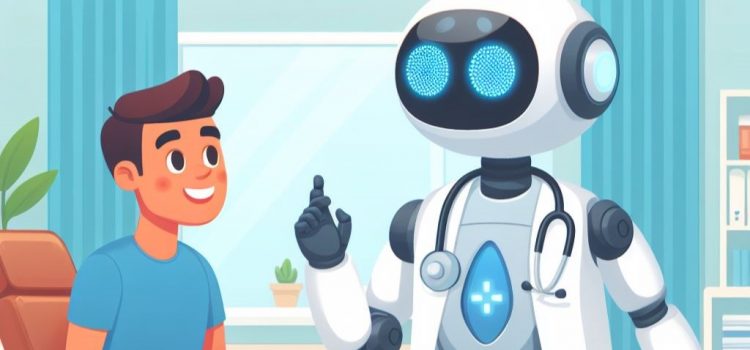
This is a free excerpt from one of Shortform’s Articles. We give you all the important information you need to know about current events and more.
Don't miss out on the whole story. Sign up for a free trial here .
What potential does generative AI offer to transform doctor-patient relationships in the US? How might chatbots empower patients?
AI could revolutionize the doctor-patient relationship in America by empowering patients with information and alleviating pressures on overburdened doctors. As generative AI becomes powerful and broadly used, AI companies and healthcare organizations must mitigate its potential risks and ensure its ethical, effective use.
Here’s how AI in patient care may be used to improve the healthcare experience.
Improving the Doctor-Patient Relationship
The average US primary care visit lasts just 19 minutes. Seventy-six percent of patients leave these appointments dissatisfied with their interaction with their physician and without a clear understanding of what they’ve been told. Fifty-nine percent of doctors practicing for 11 to 15 years experience burnout.
This status quo severely impacts the quality of communication and care that patients in the US healthcare system receive. Using AI in patient care could offer solutions—but also raises big questions for the future.
Background
AI technologies like ChatGPT are poised to disrupt the patient-physician dynamic. AI can process huge amounts of medical data and research to provide patients with customized health insights similar to those of clinicians.
Both doctors and patients currently experience strains in the healthcare system. Physicians grapple with escalating demands on their time, limiting meaningful interactions with patients. Patients often feel rushed and unable to fully communicate their concerns to their doctors.
AI, if thoughtfully implemented, could help strengthen doctor-patient relationships by providing on-demand support for patients and automating doctors’ administrative tasks.
AI’s Potential Benefits to Patient Care and Physician Relations
Experts assert that, in the years ahead, AI is positioned to bolster doctor-patient relations by empowering patients and alleviating physicians’ burdens.
1. Empower patients. AI will soon increase patients’ access to information they’ve historically relied on doctors to provide.
- Chatbots, one type of AI, will give patients easy-to-understand answers to common health queries, offering personalized insights at any time.
- AI tools will integrate with health monitors and electronic records to grant patients an in-depth understanding of their health challenges. Some experts say this will enable them to self-diagnose and manage some conditions.
Armed with more knowledge, patients will be better positioned to engage with doctors on equal footing and have more meaningful conversations about their care.
2. Alleviate physicians’ burdens. AI offers the potential to relieve doctors of time-consuming work that hinders meaningful patient interactions and increase their capacities by:
- Automating administrative tasks.
- Efficiently summarizing patient medical records and synthesizing large amounts of patient history and medical literature.
- Enabling detection of subtle patterns within large data pools and making informed recommendations about diagnoses, treatments, and lifestyle changes tailored to each patient’s unique profile.
- Increasing instant access to information such as clear chart summaries, treatment protocols, and information that primary care physicians (PCPs) have traditionally had to source from specialists.
By removing doctors’ burdens and improving their access to information critical to patient care, AI would give physicians more time to establish stronger connections with patients and engage in more satisfying aspects of their work.
Looking Ahead
Experts predict that in the next five to 10 years, AI tools will become 32 times more powerful, safe, and reliable. In this time, AI will continue to become more deeply ingrained in all facets of US health care and reshape doctor-patient relationships.
Until the technology is proven safe and reliable, however, experts say that healthcare and AI companies must take steps to ensure its ethical, and effective use and mitigate potential risks—including biased outcomes, inaccurate results, patient confidentiality breaches, and excessive patient dependence on AI advice.

Want to fast-track your learning? With Shortform, you’ll gain insights you won't find anywhere else .
Here's what you’ll get when you sign up for Shortform :
- Complicated ideas explained in simple and concise ways
- Smart analysis that connects what you’re reading to other key concepts
- Writing with zero fluff because we know how important your time is






